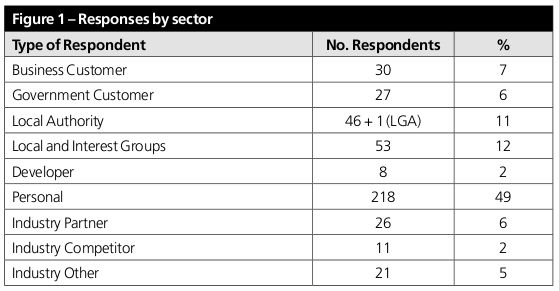Back when this all began, Stuart Harrison set up a petition on the Number 10 website:
“We the undersigned petition the Prime Minister to encourage the Royal Mail to offer a free postcode database to non-profit and community websites.”
Details of Petition:
“Royal Mail today sent a ‘cease and desist’ letter to Ernest Marples Ltd, the organisation providing a post code API allowing social projects to use post code searches. Because of this, many useful websites are no longer functioning, including PlanningAlerts.com, Job Centre Pro Plus and Healthware. We therefore are asking the Prime Minister to encourage to Royal Mail to offer a second free license for non-profit projects of this nature who otherwise could not afford to pay for a license, so they can offer useful location-based services for their users.”
We, of course, eagerly signed up — as did many others. The petition got enough signatures to get a response from Number 10, which has just been issued. Except… it’s not really a response. In that a respond should — well — respond to the points raised, which this one doesn’t.
Instead, we have a history lesson. It’s quite interesting (although not new to us) but it doesn’t address any of the problems raised. It doesn’t talk about the value of data or the importance of PAF or Postzon. It doesn’t even mention open data, or citizen-led web services.
Number 10 has accepted responsibility for liberating public data. They’ve appointed Tim Berners-Lee. It’s the attention that Number 10 have given this issue that led to the launch of data.gov.uk yesterday. And it’s Number 10′s clout that we’ll need to liberate data that’s currently caught up in a web of private commercial interests and archaic bureaucracies.
And yet, on the back of people’s attempts to fix the problem, and specifically given an opportunity to do something at a time when people are engaged, listening and excited, we get the brush-off. A statement containing a lot of words that don’t really say anything.
I’m going to respond to the last two paragraphs specifically.
Postcomm has previously undertaken a public consultation reviewing how the PAF was managed. The consultation started in 2006 and finished in 2007. Postcomm took all the diverse uses of the PAF into account before reaching its decision in 2007…
Ah yes. The hallowed consultation. The one where they considered the diverse uses that the everyone who pays for PAF data puts it to. Is too much to say that a group of companies, making good money from PAF data, might have a vested interest in keeping it locked up behind a paywall? Is it any surprise that the PAF Advisory Board, containing a grand total of zero representatives of the third sector, might not represent our interests?
…announcing more safeguards for the management of the address information held in the PAF with the aim of making sure that the PAF is maintained properly and made available on fair and reasonable terms.
Rubbish. PAF is manifestly not available on fair and reasonable terms.
It is not fair or reasonable to ask tiny organisations, working for social good, to stump up thousands of pounds a year to use data that that’s as much a part of our national infrastructure as roads and telephone lines.
Royal Mail currently charge a £750 data delivery fee — in addition to the licence fee — if you elect to obtain PAF via a download. On what planet is it fair or reasonable to charge £750 for a download?
If any PAF user or stakeholder feels that Royal Mail is not complying with the terms of section 116 of the PSA 2000 or Condition 22 of its licence, they can either raise concerns direct with the company or with Postcomm. Postcomm would consider the merits of any such concerns in the light of its statutory duties.
Again — this entirely misses the point. No one has accused Royal Mail of not complying with its licence. The problem isn’t that Royal Mail isn’t complying to its licence terms — I’m sure it is — the problem is that its licence doesn’t contain the right terms in the first place.
The problem is that the licence was formed to suit industry. To suit people who resell PAF data, and who use it to save money and do business. And that’s fine — I have no problem with industry, commercialism or using public data to make a profit.
But this approach belongs to a different age. One where the only people who needed postcode data were insurance and fulfilment companies. Where postcode data was abstruse and obscure. We’re not in that age any more.
We’re now in an age where a motivated person with a laptop can use postcode data to improve people’s lives. Postcomm and the Royal Mail need to confront this and change the way that they do things. They may have shut us down, but if they try to sue everyone who’s scraping postcode data from Google, they’ll look very foolish indeed.
Finally — and perhaps most importantly — we need a consistent and effective push from the top. Number 10′s right hand needs to wake up and pay attention to the fantastic things the left hand’s doing.
Without that, we won’t get anywhere.




